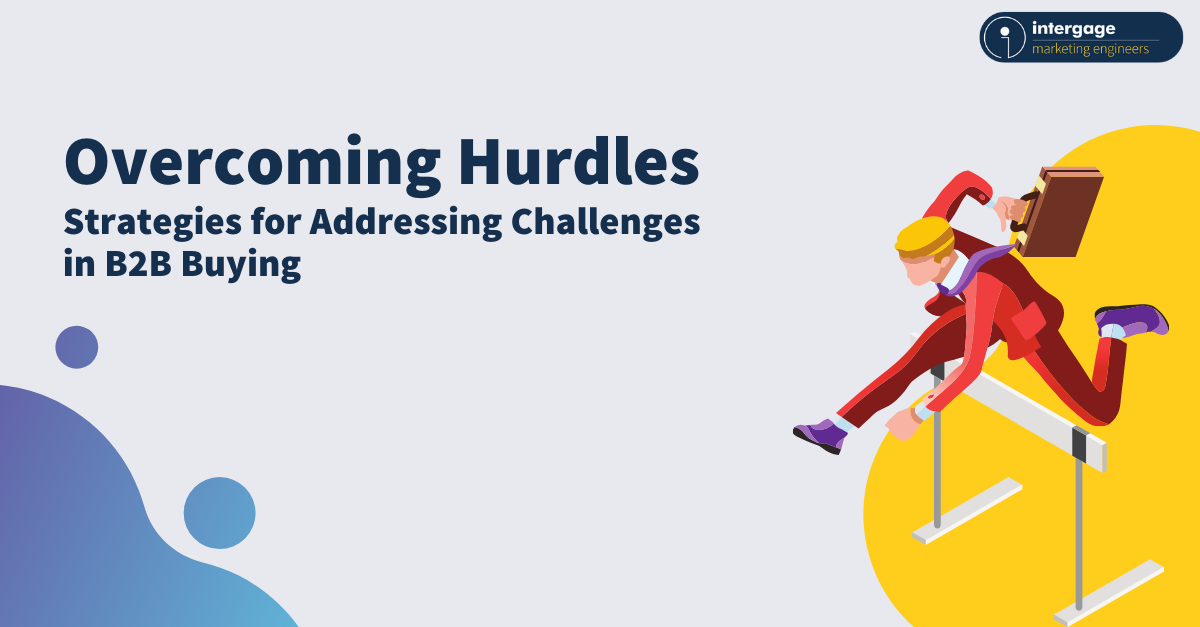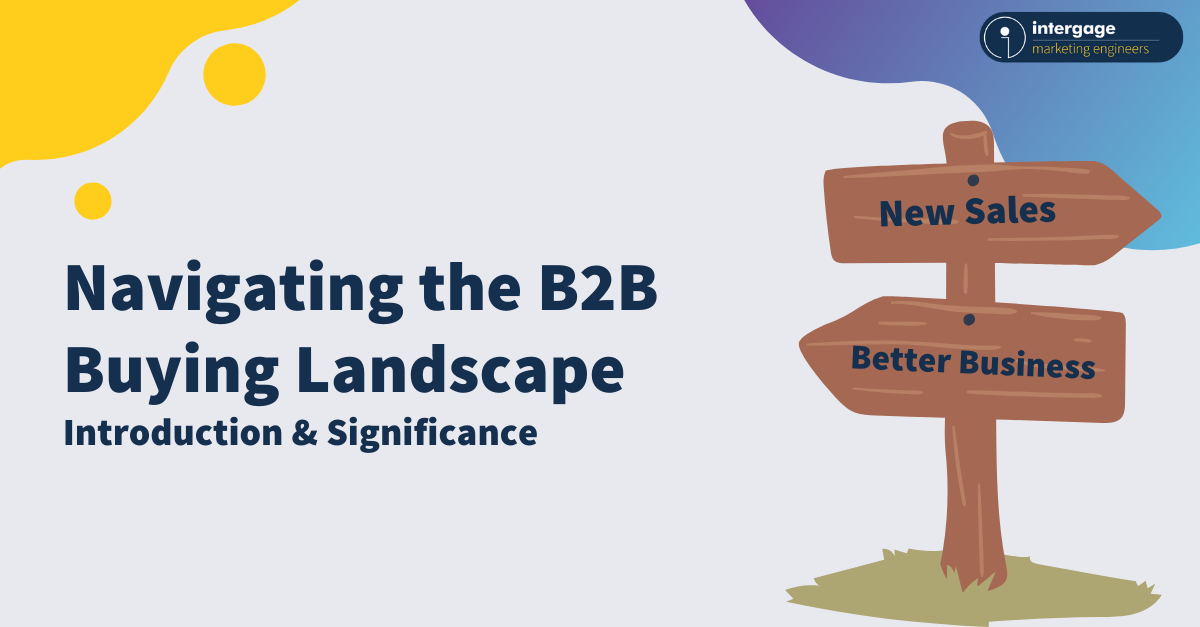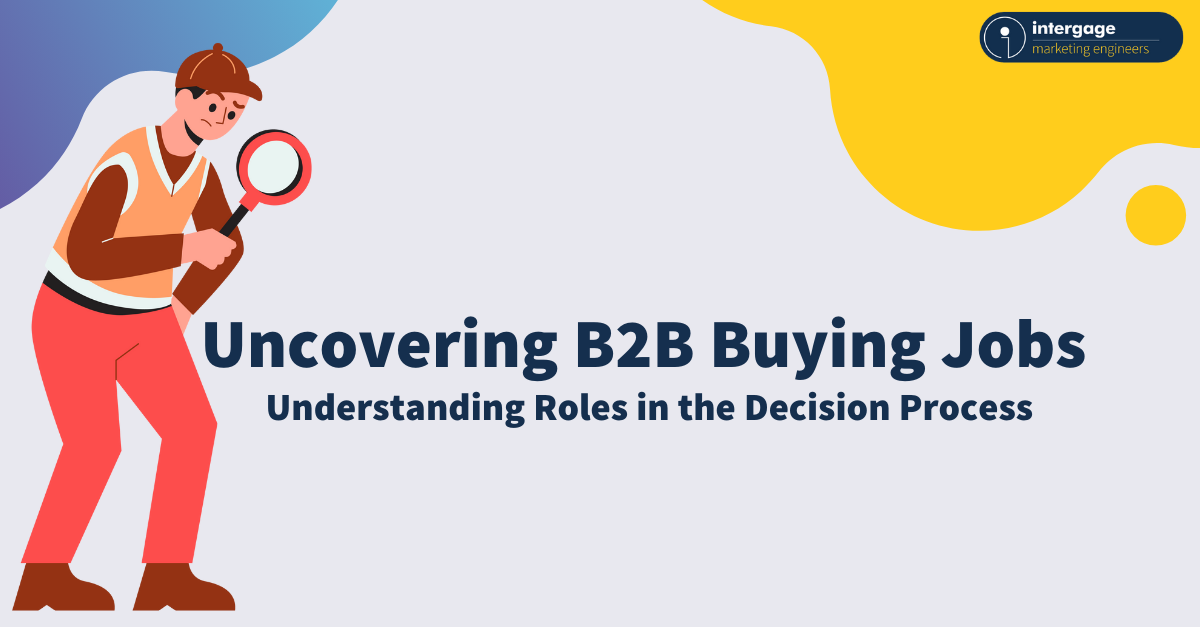Everything You Need to Know About Ideal Customer Profiles
Here’s the thing: B2B sales is going through a time of increased caution. Buyers are paralysed by the Fear of Messing Up, and then sellers cannot sell. On its own this is pain enough, but for many in the B2B world the frustration of sales slipping through their fingers comes together with increasingly poor lead quality, wasted marketing ROI, and an ever-growing sales cycle length.
In short: buyers are struggling to buy. Which means sellers are struggling to sell. Sound familiar?Cracking the code of who to sell to shouldn't be rocket science, but you'd be surprised how many businesses are out there winging it. They have a rough sketch of their Ideal Customer Profile (ICP) — think of it like a blurry photo where you can't quite make out the face. That's no way to aim for success.
It's about getting up close and personal with those who are not just likely to buy from you but are the perfect fit for what you're dishing out. With less than half of predicted sales crossing the finish line, zeroing in on the right crowd is the smart move.
What’s an ICP and why should you care?
Picture an ICP as a composite sketch — not of a suspect! — but of your business's hero. It's a detailed blueprint of the customer who will get the most out of your products or services.
Think demographics, think psychographics, think behavioural patterns. It’s about understanding their buying journey from A to Z, their choices, their go-to shopping haunts, and the pain points your products are trying to solve.
4-in-5 B2B businesses fail to have their ICP accurately homed in and then ratified in their marketing and sales processes. An ICP to some businesses is “tech companies on the FTSE index” – but this is way too broad.
In a previous post, we've compared the perfect ICP to a fried egg as part of our 'fried egg theory'. You can read more on that here.
We’re talking about the 20% of customers who bring in 80% of your revenue. Your aim should be to grow that 20% into 50%.
Focusing on your ICP in such a way allows you to work smarter, not harder. It helps you connect with the people who matter most to your business, resulting in more fruitful marketing campaigns, higher customer satisfaction and better business performance.
Bear in mind that businesses without an ICP can be defined by the symptoms; this is a splinter that has become infected.
Common symptoms of a weak ICP:
- Poor lead quality
- Low brand reputation
- Sales ops moving right
- High customer churn rate
- Failure to differentiate from competitors
- Poor sales conversion rates
Whittling down your ICP
As the B2B sales landscape becomes overgrown and impossible to traverse, you need a compass to point you towards your ideal customers.
Many of these symptoms are borne from the tendency to focus on the Total Addressable Market (TAM). Simply put, this is everyone in a market you could ever hope to reach – idealistic, rather than realistic. It shouldn’t be controversial to admit to yourself, and potentially others in your team, that the chances of reaching everyone in your TAM without wasting your—likely shrinking—marketing budget are slim-to-none.
Enter: the Serviceable Addressable Market (SAM). This is the realistic chunk that’s within your grasp, even considering things like your resources and smarketing (sales and marketing) strategies.
This is a smaller, more reasonable segment, and you might think, “great! We’re done!”
I wish.
The SAM doesn’t have any qualifiers other than the fact these are people and companies you have a reasonable chance of reaching. Within your SAM could sit companies of all types, sizes, and locations – all important factors when it comes to having a watertight ICP.
It’s all about swift and savvy targeting, not casting a wide net and hoping for the best. Knowing the ins and outs of your ICP's world — from the hurdles they face to the needs they might not even realize they have — sets the stage for a marketing strategy that's as effective as it is efficient.
So you have an ICP - what now?
With your ICP in your sights, you can finally stop the scattergun approach to marketing and start investing in relationships with the high rollers — those who don't just bring in revenue but multiply it. If you think you know your audience because you've pegged them as "construction firms" or "manufacturers," it's time to zoom in. What's their headcount? Turnover? Culture? These aren't just details; they're the gold dust that refines your ICP, ensuring every penny of your marketing spend is on point.
There are three parts to ICP development, and here at Intergage we break them up like so:
- Assessing your present clientele to see who your ‘ideal’ is.
- interviewing your top customers to discover why they're fans of your brand.
- Bringing sales into the loop to marry their hands-on experiences with ICP qualifications.
Implementing your ICP
A rock-solid ICP doesn't just tell you who to market to; it’s a greater part of how sales functions, and how you lay the groundwork for enduring customer relationships. To use an analogy: it’s the sheet music for your marketing, ensuring every note resonates with the right audience.
And for sales? It's like having a backstage pass to the customer’s mind, letting you tailor your pitch to perfection.
But remember, like anything, an ICP isn't static. It's a living, breathing strategy that needs to evolve with the times.
Stay on your toes, keep your ICP under the spotlight, and let the hard data be the inspiration for any changes or evolutions.
What now?
An ICP isn’t just about aiming in the right direction; it's about hitting the bullseye every time. It’s about making every marketing move count, every sales pitch sing, and turning those perfect-fit customers into lifelong fans. So, take the guesswork out of your strategy, and let's make every prospect a standing ovation for your business.



